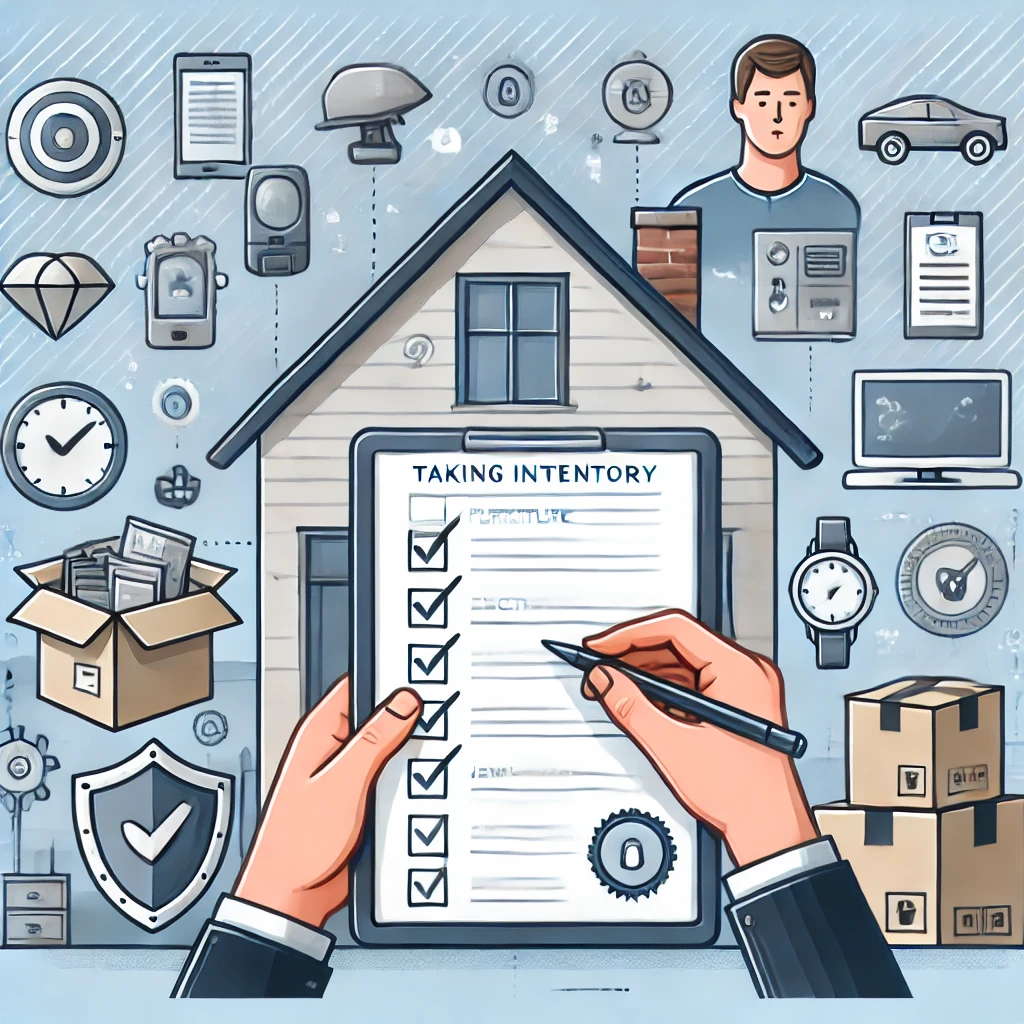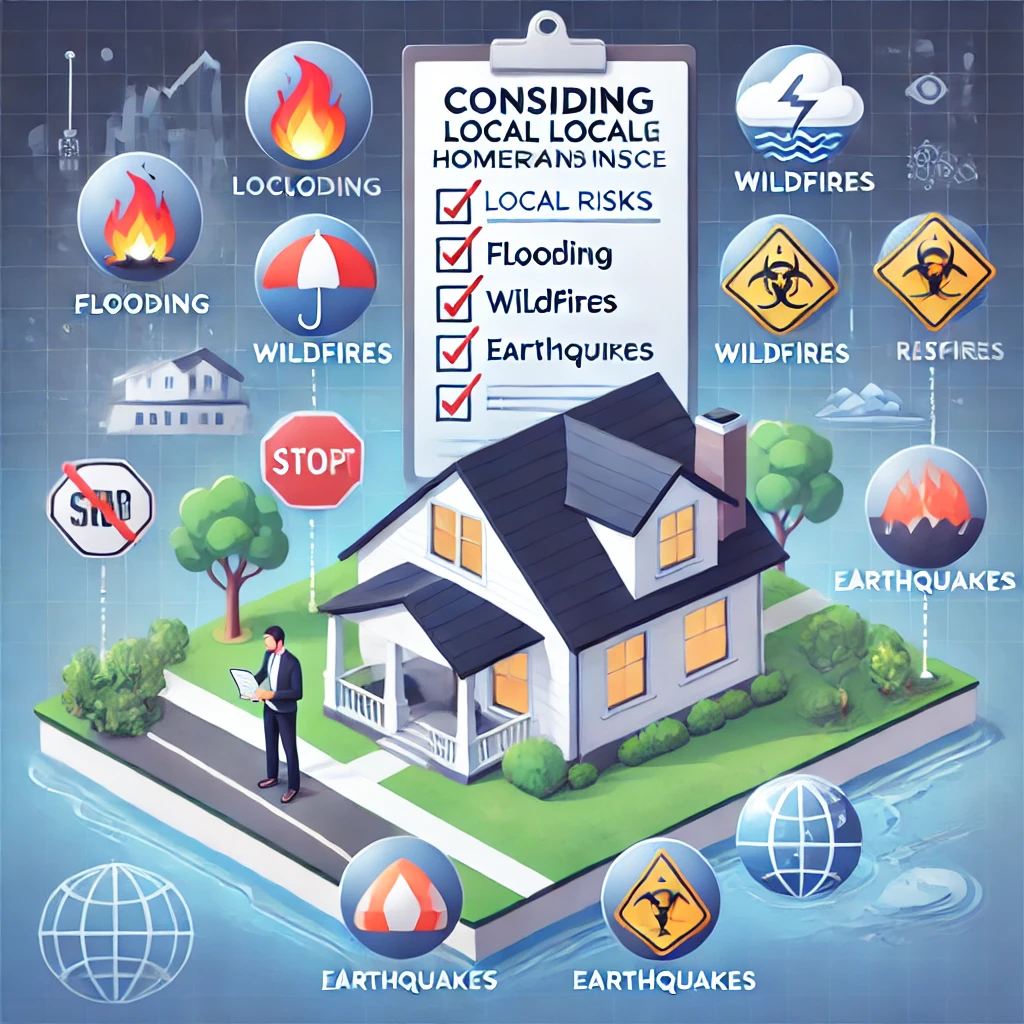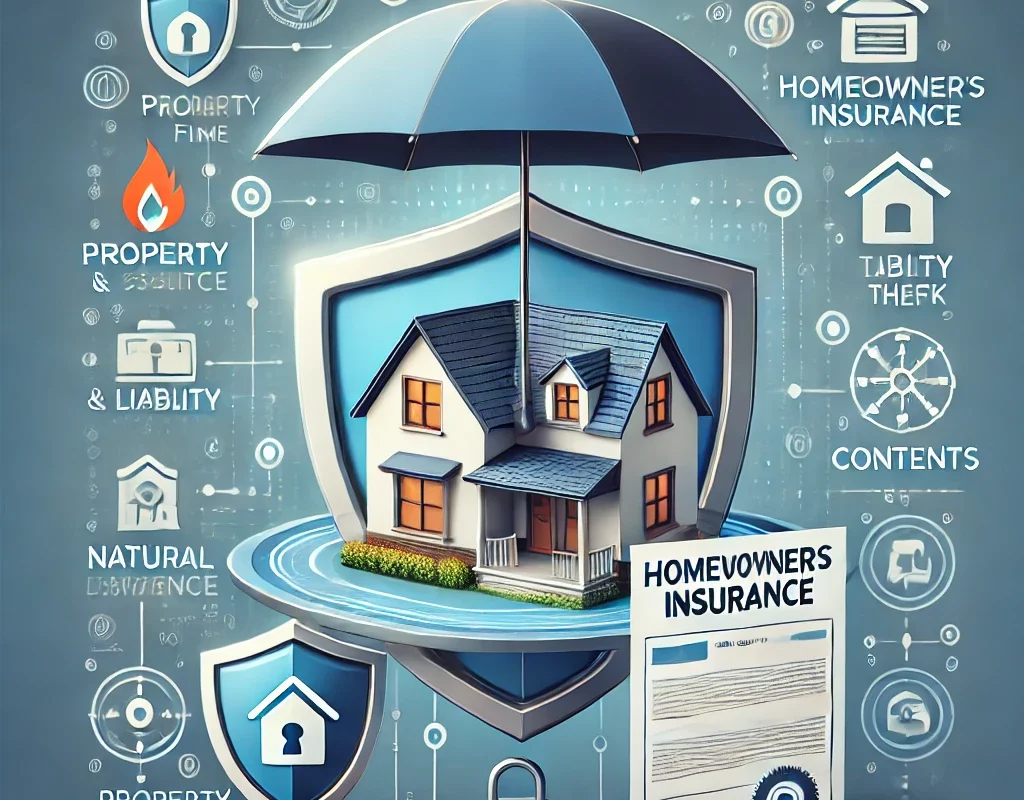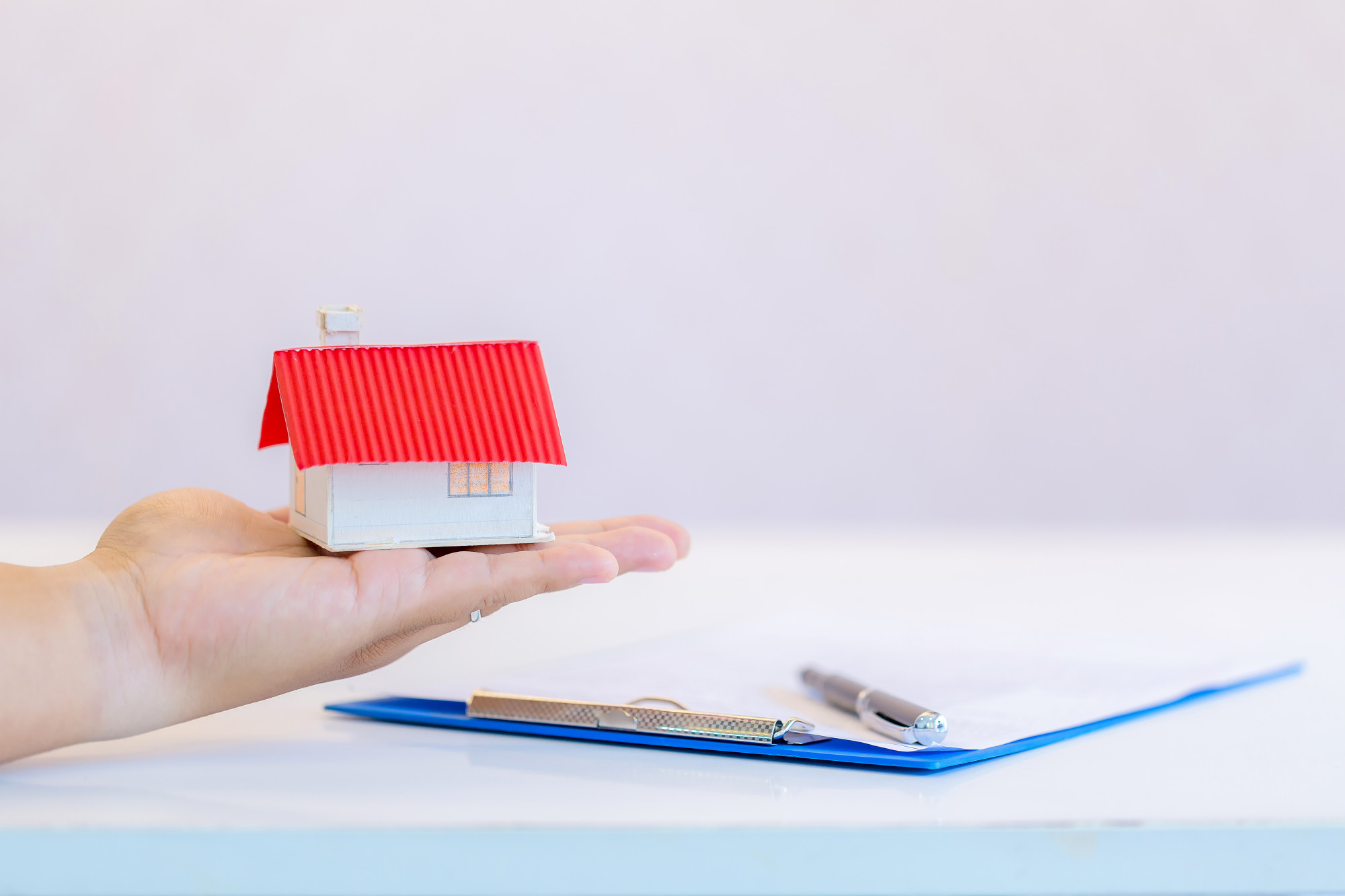Protect Your Home with Homeowners Insurance is one of the most significant investments you’ll ever make, and it’s crucial to safeguard that investment from unforeseen events. Whether it’s damage from natural disasters, theft, or accidents, having the right homeowners insurance can be the key to protecting your property, assets, and peace of mind. But with so many options and policies available, how do you choose the right one?
This article provides a comprehensive guide to help you understand the ins and outs of homeowners insurance, how it works, and how to make sure you’re fully covered for whatever life throws at you.
What Is Homeowners Insurance?
At its core, homeowners insurance is a type of property insurance that provides financial protection for your home and belongings in the event of damage or theft. Most policies cover a range of potential threats, including natural disasters, vandalism, fires, and even certain liabilities like injuries that happen on your property.
Homeowners insurance typically covers two main areas: property damage and personal liability. Property damage includes your house and personal belongings, while liability coverage protects you in case someone gets injured on your property and decides to sue.

Types of Homeowners Insurance Coverage
To ensure comprehensive protection, it’s important to understand the different types of homeowners insurance policies available. Here are some of the most common options:
1. Dwelling Coverage
This type of coverage protects the physical structure of your home, including walls, roof, and foundation. In case of a disaster, dwelling coverage ensures you’ll have the funds to repair or rebuild your home.
2. Personal Property Coverage
This covers your personal belongings, such as furniture, electronics, and clothing, in case they’re damaged, stolen, or destroyed by a covered peril. Personal property coverage is essential because it extends protection beyond just the structure of your home to your valuables.
3. Liability Protection
Liability coverage comes into play if someone gets injured on your property or if you accidentally damage someone else’s property. It covers legal expenses, medical bills, and any court-awarded damages.
4. Loss of Use
If your home becomes uninhabitable due to a covered event, this type of coverage helps pay for additional living expenses, such as hotel bills, rent, or food, while your house is being repaired.
5. Medical Payments to Others
If a guest gets injured on your property, this coverage helps pay for their medical bills, regardless of who was at ault. It’s often a lower limit than liability coverage but still offers crucial financial protection.
How Much Homeowners Insurance Do You Need?
Choosing the right amount of coverage is essential to fully protect your home and assets. Here are key considerations when deciding on the level of insurance you need:
Evaluate the Replacement Cost of Your Homeowners Insurance
The most critical factor is ensuring your policy covers the full replacement cost of your home in the event of total destruction. This is not the same as the market value; it’s the cost of rebuilding your home from the ground up, including labor and materials.
Take Inventory of Your Belongings of Homeowners Insurance
Estimate the value of your personal property, including furniture, electronics, appliances, and other valuables. Some homeowners opt for additional coverage (known as a rider) for high-value items like jewelry or artwork.
Assess Liability Risks in Homeowners Insurance
If you often have guests or a pool, for instance, your liability risks may be higher. Ensure you have sufficient liability coverage to protect yourself against lawsuits or medical claims resulting from accidents.
Consider Local Risks in Homeowners Insurance
Your geographical location also influences the types of coverage you need. For instance, if you live in a flood-prone area, you might need additional flood insurance, as most standard policies do not cover flood damage.
Factors That Influence Homeowners Insurance Costs
Several factors influence the cost of your homeowners insurance policy, and understanding them can help you find the best coverage at a price that fits your budget.
1. Location of Your Home
If you live in an area prone to natural disasters like hurricanes, earthquakes, or wildfires, expect to pay higher premiums. Similarly, homes located near high-crime areas may also have higher insurance costs due to the risk of theft or vandalism.
2. Home Features and Condition
The age of your home, its construction materials, and the condition of your roof or plumbing can affect your insurance rates. For example, older homes might cost more to insure because they may need more repairs or be more vulnerable to damage.
3. Security Measures
Homes equipped with safety features like security systems, smoke detectors, and burglar alarms may qualify for discounts. Insurers tend to offer lower premiums if you take steps to reduce the risk of claims.
4. Personal Claims History
If you’ve made homeowners insurance claims in the past, insurers may view you as a higher risk and charge more for your policy. Maintaining a claim-free record can help lower your premiums.
5. Deductible Amount
The deductible is the amount you pay out of pocket before your insurance kicks in. Opting for a higher deductible can lower your monthly premium but means you’ll pay more upfront if you file a claim.

Understanding Policy Exclusions of Homeowners Insurance
Not all types of damage or loss are covered under a standard homeowners insurance policy. It’s important to be aware of the common exclusions so you can purchase additional coverage if necessary.
1. Flooding
Most standard policies do not cover flood damage. If you live in a flood-prone area, you will need to buy separate flood insurance.
2. Earthquake Damage
Earthquakes are another exclusion in standard policies. Similar to flood coverage, you can purchase a separate earthquake insurance policy if needed.
3. Wear and Tear
Normal wear and tear or damage caused by neglect is generally not covered. Homeowners are responsible for maintaining their property, so damages resulting from poor upkeep are excluded.
4. Acts of War
Damage caused by war or nuclear accidents is not covered by homeowners insurance policies. These are rare, but worth noting as they’re part of standard exclusions.
How to Choose the Right Homeowners Insurance Policy
With so many options available, selecting the best homeowners insurance policy can feel overwhelming. Here’s a step-by-step guide to help you make the right decision:
1. Compare Policies from Multiple Providers
Don’t settle for the first quote you receive. It’s essential to compare policies from different providers, not just in terms of cost but also the coverage they offer. Make sure the policy meets your specific needs.
2. Read the Fine Print
Understanding your policy is critical to ensuring you’re covered when disaster strikes. Pay attention to what’s included and excluded, and make sure you know the limits of your coverage.
3. Consider Customer Service and Claims Satisfaction
The true test of any insurance company is how they handle claims. Check online reviews and ask friends or family about their experiences with specific insurers. Excellent customer service can make a significant difference when you’re dealing with the stress of property damage.
4. Ask About Discounts
Many insurance companies offer discounts for things like bundling policies (e.g., home and auto), installing safety features, or maintaining a claim-free history. Be sure to ask about all available discounts when getting a quote.
You Can Also Read : How to Choose the Best Life Insurance Policy for Your Family
Protect Your Home with the Right Homeowners Insurance
When it comes to safeguarding your biggest investment, the right homeowners insurance is crucial. It’s more than just protecting bricks and mortar—it’s about ensuring your peace of mind. By carefully evaluating your home’s replacement cost, understanding your risk factors, and selecting coverage that meets your needs, you can sleep easier knowing you’ve made a smart, protective choice.



